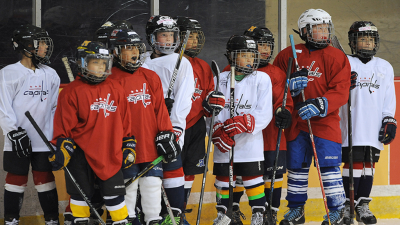Although each child develops uniquely based on their individual genes and environment, young children should not be viewed as miniature adults, neither from a cognitive or physiological standpoint. From a cognitive perspective, the frontal lobe of the brain is less developed in growing children. This area is responsible for reasoning and objective thinking. Young children are much more emotional thinkers than their adult counterparts. From a physiological standpoint, the heart is not yet fully developed (the greatest increase in heart volume occurs at approximately eleven years of age for girls, and approximately fourteen years of age for boys) and many lack the requisite enzyme glycogen phosphofructokinase to produce energy anaerobically (think of glycogen as gasoline. In order for the car to work it must use, or break down gasoline.), coupled with the fact that there is a less amount of stored glycogen in the liver and muscle due to size. Finally, anabolic hormones such as testosterone don’t start making large jumps until puberty.

The best metric to measure youth sport coaches in youth ice hockey is RETENTION rates not wins and losses. According to the International Ice Hockey Federation (IIHF), hockey loses 33% of its participants each year. There are approximately 1.1 million youth athletes participating in the US and Canada annually. That equates to approximately 363,000 players that don’t return for another season. Young children need an EXPERIENCE not adult values on childhood activities.
Yours in Hockey
Anthony Donskov